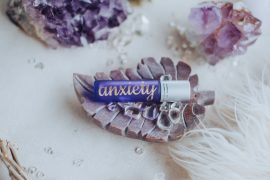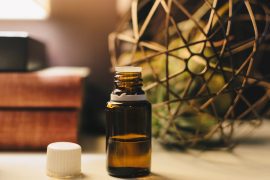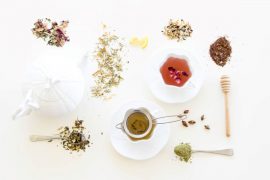BPA
BPA (Bisphenol A) can be found in hard plastics, such as baby toys, sippy cups, baby bottles and canned food lining. One of the main dangers of BPA is when the child chews on the plastic. The FDA (U.S. Food and Drug Administration) studies show that BPA has potential effects surrounding hormone levels, behavioral health, cancer risks and heart problems.
So if your child is prone to chewing on plastic toys, it’s best to avoid those that contain BPA.
Lead
Lead tends to be a concern because children can absorb it more easily in their systems than adults. This chemical can be found in plastic toys as well – and it’s been shown to affect the nervous system. Meanwhile, it’s also linked to ADHD, hearing loss and decreased IQ.
Tips for Avoiding Plastic
Unfortunately, there’s no single way to avoid plastic entirely. However, it’s possible to reduce your exposure to toxic chemicals found in products.
Eat Fresh Foods
Processed foods are surrounded by plastic packaging. So, the more you avoid these types of foods, the less likely you come into contact with the materials that could leach chemicals.
Unfortunately, there’s no single way to avoid plastic entirely. However, it’s possible to reduce your exposure to toxic chemicals found in products.
Avoid Using Problematic Plastics
Plastics you know contain these chemicals are one thing you want to avoid using. However, you don’t want to assume that all other products are safe. Products made from different types of plastics can contain toxic chemicals. So, reducing plastic use, in general, is the best way to avoid exposure.
Avoid Storing Food in Plastic
Plastic containers can contain chemicals that leach into food. This especially goes for fatty or greasy foods and highly acidic or alkaline foods. Furthermore, the likelihood of those chemicals leaching into your food increases when heating them in the microwave.
The same effects occur when plastic containers remain in a hot car. So opt for ceramic, glass or stainless steel containers.
Reduce Your Exposure to These Chemicals
It’s important to be aware of the products you bring into your home. While there’s still a small understanding of the safety of chemicals in plastic, the best thing is to assume it’s harmful. That way, you don’t put yourself and your children’s health at risk.
Jane Marsh is the founder and editor-in-chief of Environment.co where she shares practical tips on how to live a greener life.










